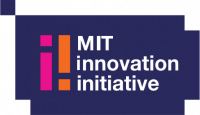Date:
Location:



Introduction
Cyber security is an issue of great importance for governments worldwide. This is reflected in increased budgets for cyber defence: According to World Bank estimates, by 2030 a total of 0.5 percentage of the world GDP will be used on cyber security. This change is driven by increasing digitalization (billions of devices connected by the Internet of Things, autonomous cars, crypto-currency, etc.) that not only improves lives, but also increases vulnerability to cyberattacks e.g. on infra-structure, banks, hospitals, factories, and homes. Today’s estimates of the damage caused by cyberattacks are around $3 trillion annually but by 2021 they will have risen to over $6 trillion. To that end, effective cyber security is about protecting our everyday lives in an increasingly digital world.
The low (and dropping) price of cyber weapons (such as computerized espionage, surveillance and information warfare tools), as well as the need for more rapid security responses, has led governments to the conclusion that the ability to control and defend cyberspace, demands enhanced collaboration between the government and private actors such as universities, entrepreneurs, large corporations, and risk capital.
We refer to such multi-stakeholder approaches as the establishment of an innovation ecosystem approach in cyber security. Examples of this new approach include CyberSpark - a joint venture between Israel’s National Cyber Directorate (INCD) in the Prime Minister’s Office, Beer Sheva Municipality, Ben Gurion University of the Negev, and leading local and international companies in the cyber security and software industry. Another example can be found in the Strategic Research and Innovation Agenda of the European Cyber Security Organization (ECS) which is an industry-led contractual counterpart to the European Commission for the implementation of Public-Private Partnerships in Cyber Security. Finally, we also see national defense agencies engaging more deeply in existing regional innovation ecosystems e.g. Greater Boston/ Kendall Square/MIT, Silicon Valley/Stanford and Tel Aviv.
Against this background, the seminar organized by the MIT Innovation Initiative, the Cyber Security Research Center, The Hebrew University of Jerusalem and Israel’s National Cyber Directorate will ask the following questions:
- What are the current best practices of an innovation ecosystem approach leading to enhanced cyber security?
- What success factors can be developed on the basis of the best practices?
- How can we create impact by translating the best practices and success factors into e.g. advanced training courses, and professional and academic publications?
Planned Outcomes of the seminar
- The creation of a new network of international experts studying and practicing in the fields of cyber security and innovation ecosystems from universities, governments, risk capital, corporations, and entrepreneurs
- A policy paper describing the different best practice and success factors of an innovation ecosystems approach leading to enhanced cyber security
- First steps towards impact through the creation of e.g. advanced training courses, and professional and academic publications focused on the role of innovation ecosystems in cyber security
Full Seminar Program is Available Here
Participants List is Available Here
Watch Pictures from the Seminar
Background Literature:
- Two working papers on Innovation Ecosystems written by Prof. Fiona Murray and Dr. Phil Budden (Here and Here).
- The paper “Studying the Tension Between Digital Innovation and Cybersecurity” written by Prof. Stuart Madnick, who is also the Founder and Co-Director of Cybersecurity at MIT Sloan.
